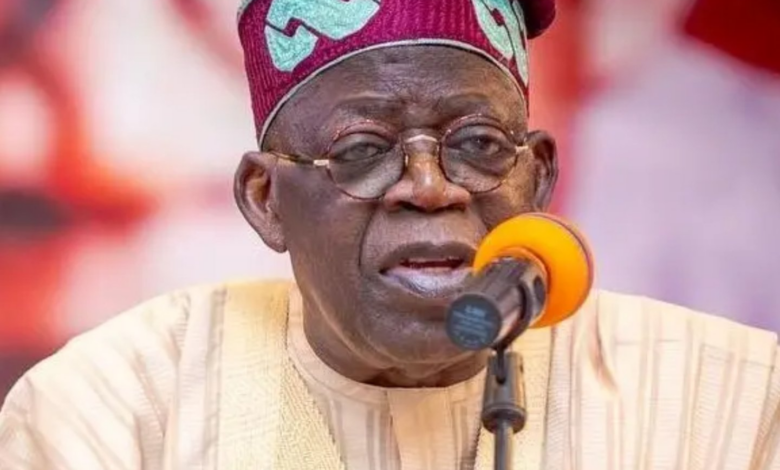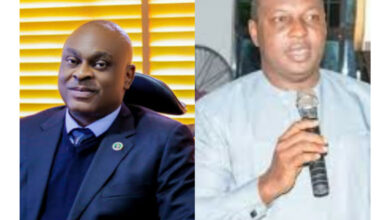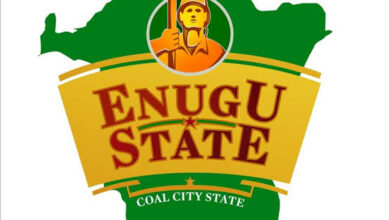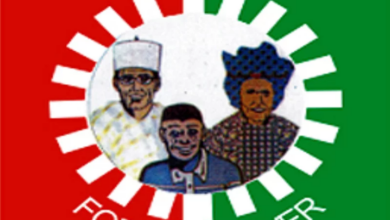May 29: Six things Tinubu should do to reunite divided Nigeria

The incoming Bola Tinubu administration faces an uphill task of reuniting a divided Nigeria.
There is a general belief among the populace that Nigeria has never been so divided than it is under the administration of President Muhammadu Buhari.
In 2015 when President Buhari took over from then President Goodluck Jonathan, he made the infamous 97 percent statement, declaring that his appointments and infrastructural development across the country would be based on the votes he received across the regions.
Buhari made his first visit to the United States on July 22, 2015, where he addressed the United States Institute of Peace (USIP) on security and counterterrorism issues in Nigeria and West Africa.
Fielding questions from members of the audience, the Nigerian leader was asked about inclusiveness in his administration and after struggling with the question, Buhari puzzled, and said, “inclusive?”
“I hope you have a copy of the election results. The constituents, for example, who gave me 97% [of the vote] cannot in all honesty be treated on some issues with constituencies that gave me 5%. I think these are political realities.”
Buhari was adjudged to be referring to the Igbo dominated South East, a region that voted massively for the Peoples Democratic Party, PDP, candidate, Goodluck Jonathan in the election.
Since his inauguration in 2015, Buhari’s appointment has continued to generate controversy among citizens who accuse the President of marginalization and disregard for Federal Character policy.
And this is against his vow to “belong to everybody” and “belong to nobody. Many Nigerians think he has not lived up to his promise.
The President in his nearly 8 years in office seems to have ignored diversity of the country, comprising multi-ethnic groups in the North and the South and also goes against the Constitution which recognised this diversity and enacted the Federal Character Commission Act.
According to public records, the Southeast and South South have marginal representation in the Buhari government, while the North takes the majority of the appointments.
Statistics available shows that the North West, the zone of the President, had the highest appointments in the outgoing government.
The outgoing administration also appeared to have taken sides, turned a blind eye or sympathised with a section of the elements who goes about killing, raping, maiming innocent citizens and destroying farmlands of their victims.
Buhari once said that had he not joined the armed forces, he would have simply settled as a cattle rearer and this could be interpreted differently by anybody.
And Nigerians have begun to question the ability of the President-elect, Asiwaju Bola Tinubu, to unite a system that has been so highly polarized to a scary extent that citizens could boldly stop their fellow citizens from voting during elections because they belong to one ethnic group or another.
There is a lot the incoming administration of Ahmed Tinubu could do to unite the country.
To reunite Nigeria and correct some of the damaging mistakes of the Buhari administration, DAILY POST considers seven (7) things the President-elect should be willing to do.
Support South East Senate Presidency: Tinubu should support the South East to produce the President of the 10th Senate. Tinubu ran and won the election on a platform that did not see anything wrong in the same faith ticket.
Bola Tinubu, a Yoruba Muslim and Kashim Shettima, a Muslim from the North East, will be pioneering the affairs of the country from May 29, and for equity and fairness, a Christian from the South East should be supported to become the country’s number 3 citizen. This will give the South East a sense of belonging in the incoming administration.
Reconciliation: In order to fulfill his campaign promise of being the President of all Nigerians no matter their political affiliations, religion or ethnicity, the president-elect should, through words and actions, reconcile the aggrieved section of the society, especially the youths, who are largely of the opinion that their mandate was stolen.
Immediately after the February 25 elections, Tinubu was reported to have set up committees to reconcile his camp with his challengers who lost to him in the presidential election, such as Peoples Democratic Party, PDP’s Atiku Abubakar and Peter Obi of the Labour Party.
The committees, comprising elders of the APC, are meant to begin to meet with co-contestants of the President-elect in a bid to assuage feelings. Tinubu should be able to go ahead with the reconciliation even after the Supreme Court might have ruled in his favour in cases filed by the other contestants.
In the speech he delivered shortly after he was declared the winner of the presidential election, Tinubu extended a hand of fellowship to the supporters of his opponents in the election.
Shed-off bagages: Some of the aides of the president-elect are not helping matters in terms of calming the situation after the presidential election. Nigeria cannot be united in a situation some of the president-elect’s aides continue to generate unnecessary tension. At this point, there should be people trying to douse the situation and bring calmness. People who express their opinions about the election should not automatically become enemies, called all sorts of foul and disparaging names. The activities of some of the aides on social media have only added insult on top of injury. For instance, the likes of former Minister of Aviation, Femi Fani-Kayode and the current minister of State for Labour, Festus Keyamo, have turned themselves into attack dogs. But whatever their antics have not helped matters since after the Presidential election as their constant clashes with the Obidients and supporters of the Labour Party are generating tension. Notably, Fani-Kayode and Keyamo are not alone in this as Bayo Onanuga also needs to act presidentially.
Spread major works of development: The Buhari administration has been heavily criticized for being sectional. The incoming administration should not toe such path. All the infrastructural development plans of the president-elect, as contained in his manifesto, should include every part of Nigeria, and equally distributed be it the places he received just 5 percent votes or in those places he got more votes. This will make the people see him as the unifier he has promised to be. So, it behoves the president-elect, Bola Tinubu to spread his major works of development across the country and not focus on only the places he won election.
Balanced appointment: Unlike the outgoing administration that allegedly sees some sections of Nigeria as better than the others in terms of appointments into key positions, including security services, the incoming government should correct this anomaly and make every part of the country have a sense of belonging. Although the Presidency has maintained that the decision to appoint or sack Service Chiefs and other officials was the President’s prerogative, Nigerians will feel more secure in their country knowing that their interests are well protected.
Youth-friendly policies: The incoming government should put in place youth-friendly policies that could help solve the ‘japa syndrome’. The incoming government should make Nigerians stay in their country and bridge the divide.
There has been a significant increase in the number of Nigerians migrating to the global West and given the opportunity, according to a survey by the Africa Polling Institute, more than 7 out of 10 Nigerians, especially the youths, would leave the country in search of a better living.
Many youths are dumping their country because of few employment opportunities and rising insecurity, hardship and hunger in the hopes of more viable prospects abroad.
A report from the National Bureau of Statistics (2020) said that youth unemployment for those aged 15-34 is at 42.5 per cent, with youth underemployment at 21.6 per cent. And this figure has sky-rocketed in 2023. Despite the fact that a large population of the Nigerian youth did not vote for Tinubu in the presidential election, the president-elect should ensure his policies draw the young people closer to his government.




